
Archie Shepp's second album for Impulse! merges the fire of free jazz with an incredibly eclectic set of styles, his inclusive approach to composition integrating a vast source of styles from Ellington to Ipanema; this is paired with Shepp's octet release, including an epic 20 minute work for American artist Robert Thompson reflecting his paintings in powerful thematic and abstract expression.
In Stock
Quantity in Basket: None
Log In to use our Wish List
Shipping Weight: 3.00 units
EU & UK Customers:
Discogs.com can handle your VAT payments
So please order through Discogs
Sample The Album:
Archie Shepp-tenor saxophone
Marion Brown-alto saxophone
Reggie Johnson-double bass
Joe Chambers-drums
Perry Robinson-clarinet
Tommy Turrentine-trumpet
Grachan Moncur III-trombone
Roswell Rudd-trombone
Howard Johnson-tuba
Charlie Haden-double bass
Beaver Harris-drums
Click an artist name above to see in-stock items for that artist.
UPC: 752156113621
Label: ezz-thetics by Hat Hut Records Ltd
Catalog ID: ezz-thetics 1136
Squidco Product Code: 32271
Format: CD
Condition: New
Released: 2022
Country: Switzerland
Packaging: Cardboard Gatefold
Tracks 1-5 recorded at Van Gelder Studios, on February 16th, and March 9th, 1965, tracks 6-9 recorded and August 16th, 1966. Fire Music was originally release in 1965 as a vinyl LP on the Impulse! label with catalog code AS-86. Mama Too Tight was originally released in 1967 as a vinyl LP on the Impulse! label with catalog code A-9134.
"Fire Music" is now regularly applied to strains of free jazz fueled by fierce, even atomizing intensity. The irony of the usage is that the music it references bears scant resemblance to much of Archie Shepp's second album for Impulse!.
While Fire Music represented the outer limits of what major record companies would market in 1965, it was not an incendiary manifesto: it was nuanced, pungent, and occasionally sentimental, as well as bold and uncompromising. As Nat Hentoff reported in his liner notes, Shepp sought a new socially responsible form of popular music, which is best understood in the context of an earlier remark by LeRoi Jones, quoted by Hentoff, that Shepp's ethics and esthetics were one.
Shepp's tapping of buoyant Juba rhythms, Mingus' protean emotionalism, Ellington's perfumed romanticism, and Jobim's sensuality, also confirmed Jones' observation in Black Music that Shepp's only influence was "everything." To create a compelling statement, this panoramic perspective required a clear, incisive assessment of what was then relevant from a critical African American perspective.
The album pointedly evoked the jarring, often incongruent sequences of events of 1965, exemplified by "The Girl from Ipanema" winning the Grammy for Best Song of the Year less than 60 days after the murder of Malcolm X. It is unknown what would have rounded out the four sextet tracks absent the assassination that prompted Shepp's penning of "Malcolm, Malcolm - Semper Malcolm." Inserted at the beginning of the album's B side, the funereal, text-driven trio piece profoundly altered the shape of the album.
Shepp had hit his stride as an arranger on his Impulse! debut, extrapolating well-known Coltrane compositions with flourish-flecked four-horn voicings, and reworking the previously recorded "Rufus (Swung His Face To The Wind, And Then His Neck Snapped)." He continued in same vein using almost identical instrumentation on Fire Music, amping the misty-eyed lyricism of an Ellington chestnut, and giving the slinky Jobim tune new swagger. His abilities as an orchestrator contributed to the success of what was, arguably, his most ambitious composition to date, "Hambone."
"Hambone" exemplifies what Ekkehard Jost identified as a "stratum of historic-stylistic materials" in Shepp's music (Jost's italics). Something of the same had already circulated about Shepp as a saxophonist - in '65, Jones referred to him being known as a "new wave Ben Webster." By reaching back to one of the earliest African American musical practices, and embedding it within a compelling multi-sectioned composition, Shepp distinguished himself as a composer.
Shepp's next milestone composition was "A Portrait of Robert Thompson (as a young man)," a nearly 20-minute work comprising the A side of the 1966 octet date, Mama Too Tight. Like Thompson's paintings, Shepp's canvass melded classical themes with abstract expressionism, juxtaposing thunderous collective improvisation with "Prelude to a Kiss," urbane blues phrasing, and two marches that Jost characterized as "gay and malicious."
The piece represented a quantum leap, conceptually, for Shepp. However, it remains only one side of the provocative coin Shepp minted. The title piece is a 13-bar blues, the first of several rousing R&B tunes Shepp would record over the next few years. "Theme for Ernie" (Henry) is sultry jazz balladry with an Ellington-Strayhorn tinge, to which Shepp appended a short Latinate vamp. Ending the album as ambitiously as it began, "Basheer" ricochets between jazz modernism, old school blues, and high-velocity polyphony.
Jost may have had Fire Music and Mama Too Tight in mind when he suggested that by 1965 Shepp spoke "basically two musical languages whose grammar and syntax had hardly anything in common." This reflected the commentariat's insistence that a chasm existed between free jazz and mainstream jazz practices, and, implicitly, between the New Wave in Jazz and the New Breed led by James Brown. What was revolutionary about Shepp's music is that it rejected the underlying binary, and embraced an inclusive approach.
For Shepp, the African American music continuum represents the nexus of ethics and esthetics by virtue of its traditional and ongoing messaging function - that is the key to fully understanding Fire Music and Mama Too Tight. Juxtaposing materials then not commonly heard within a composition on an album side was not a contrarian gesture, nor an indulgence in pastiche. It was integral to his expression of social responsibility, a higher sense of purpose.
Shepp described that purpose to Jones in a Down Beat interview quoted by Hentoff to conclude his Fire Music notes. The African American musician "is a reflection of the Negro people as a social and cultural phenomenon. His purpose ought to be to liberate America esthetically and socially from its inhumanity. The inhumanity of the white American to the black American as well as the inhumanity of the white American to the white American is not basic to America and can be exorcised. I think the Negro people through the force of their struggles are the only hope of saving America, the political or the cultural America."-Bill Shoemaker, June 2022
Artist Biographies
• Show Bio for Archie Shepp "Archie Shepp (born May 24, 1937) is an American jazz saxophonist. Shepp was born in Fort Lauderdale, Florida, but raised in Philadelphia, Pennsylvania. He studied piano, clarinet, and alto saxophone before focusing on tenor saxophone. He occasionally plays soprano saxophone and piano. He studied drama at Goddard College from 1955 to 1959. He played in a Latin jazz band for a short time before joining the band of avant-garde pianist Cecil Taylor. Shepp's first recording under his own name, Archie Shepp - Bill Dixon Quartet, was released on Savoy Records in 1962 and featured a composition by Ornette Coleman. Along with John Tchicai and Don Cherry, he was a member of the New York Contemporary Five. John Coltrane's admiration led to recordings for Impulse! Records, the first of which was Four for Trane in 1964, an album of mainly Coltrane compositions on which he was joined by trombonist Roswell Rudd, bassist Reggie Workman and alto player John Tchicai. Shepp participated in the sessions for Coltrane's A Love Supreme in late 1964, but none of the takes he participated in was included on the final LP release (they were made available for the first time on a 2002 reissue). However, Shepp, along with Tchicai and others from the Four for Trane sessions, then recorded Ascension with Coltrane in 1965, and his place alongside Coltrane at the forefront of the avant-garde jazz scene was epitomized when the pair split a record (the first side a Coltrane set, the second a Shepp set) entitled New Thing at Newport released in late 1965.File:Archie Shepp interview 1978.webmPlay media(video) Interview from 1978, Archie Shepp discusses jazz trends, poverty, politics, civil rights, culture and society. In 1965, Shepp released Fire Music, which included the first signs of his developing political consciousness and his increasingly Afrocentric orientation. The album took its title from a ceremonial African music tradition and included a reading of an elegy for Malcolm X. Shepp's 1967 The Magic of Ju-Ju also took its name from African musical traditions, and the music was strongly rooted in African music, featuring an African percussion ensemble. At this time, many African-American jazzmen were increasingly influenced by various continental African cultural and musical traditions; along with Pharoah Sanders, Shepp was at the forefront of this movement. The Magic of Ju-Ju defined Shepp's sound for the next few years: freeform avant-garde saxophone lines coupled with rhythms and cultural concepts from Africa. Shepp was invited to perform in Algiers for the 1969 Pan-African Cultural Festival of the Organization for African Unity, along with Dave Burrell, Sunny Murray, and Clifford Thornton. This ensemble then recorded several sessions in Paris at the BYG Actuel studios. Shepp continued to experiment into the new decade, at various times including harmonica players and spoken word poets in his ensembles. With 1972's Attica Blues and The Cry of My People, he spoke out for civil rights; the former album was a response to the Attica Prison riots. Shepp also writes for theater; his works include The Communist (1965) and Lady Day: A Musical Tragedy (1972). Both were produced by Robert Kalfin at the Chelsea Theater Center. In 1971, Shepp was recruited to the University of Massachusetts Amherst by Randolph Bromery, beginning a 30-year career as a professor of music. Shepp's first two courses were entitled "Revolutionary Concepts in African-American Music" and "Black Musician in the Theater". Shepp was also a professor of African-American Studies at SUNY in Buffalo, New York. In the late 1970s and beyond, Shepp's career went between various old territories and various new ones. He continued to explore African music, while also recording blues, ballads, spirituals (on the 1977 album Goin' Home with Horace Parlan) and tributes to more traditional jazz figures such as Charlie Parker and Sidney Bechet, while at other times dabbling in R&B, and recording with various European artists including Jasper van't Hof, Tchangodei and Dresch Mihály. Shepp is featured in the 1981 documentary film Imagine the Sound, in which he discusses and performs his music and poetry. Shepp also appears in Mystery, Mr. Ra, a 1984 French documentary about Sun Ra. The film also includes footage of Shepp playing with Sun Ra's Arkestra. Since the early 1990s, he has often played with the French trumpeter Eric Le Lann. In 1993, he worked with Michel Herr to create the original score for the film Just Friends. In 2002, Shepp appeared on the Red Hot Organization's tribute album to Fela Kuti, Red Hot and Riot. Shepp appeared on a track entitled "No Agreement" alongside Res, Tony Allen, Ray Lema, Baaba Maal, and Positive Black Soul. In 2004 Archie Shepp founded his own record label, Archieball, together with Monette Berthomier. The label is located in Paris, France, and includes collaborations with Jacques Coursil, Monica Passos, Bernard Lubat, and Frank Cassenti." ^ Hide Bio for Archie Shepp • Show Bio for Marion Brown "Marion Brown (September 8, 1931 - October 18, 2010) was an American jazz alto saxophonist and ethnomusicologist. He is most well known as a member of the 1960s avant-garde jazz scene in New York City, playing alongside musicians such as John Coltrane, Archie Shepp, and John Tchicai. He performed on Coltrane's landmark 1965 album Ascension. Brown was born in Atlanta, in 1931. He joined the Army in 1953 and in 1956 went to Clark College to study music. In 1960 Brown left Atlanta and studied pre-law at Howard University for two years. He moved in 1962 to New York, where he befriended poet Amiri Baraka and musicians including Ornette Coleman, Archie Shepp, Sun Ra, Pharoah Sanders, Paul Bley, Clifford Thornton, and Rashied Ali. He appeared on several important albums from this period, such as Shepp's Fire Music and Attica Blues, but most notably John Coltrane's Ascension. In 1967, Brown travelled to Paris, where he developed an interest in architecture, Impressionistic art, African music and the music of Erik Satie. In the late 1960s, he was an American Fellow in Music Composition and Performance at the Cité Internationale des Arts in Paris. Around 1970, he provided the soundtrack for Marcel Camus' film Le temps fou, a soundtrack featuring Steve McCall, Barre Phillips, Ambrose Jackson and Gunter Hampel. Brown returned to the US in 1970, where he felt a newfound sense of creative drive. He moved to New Haven, Connecticut, to serve as a resource teacher in a child study center in the city's public school system until 1971. He composed and performed incidental music for a Georg Büchner play, Woyzeck. In 1971, Brown was an assistant professor of music at Bowdoin College in Brunswick, Maine, a position he held until he attained his Bachelor's degree in 1974. In addition to this role, he held faculty positions at Brandeis University (1971-74), Colby College (1973-74), and Amherst College (1974-75), as well as a graduate assistant position at Wesleyan University (1974-76). Brown earned a Master's degree in ethnomusicology from Wesleyan in 1976. His master's thesis was entitled "Faces and Places: The Music and Travels of a Contemporary Jazz Musician". Throughout his tenure as an educator, Brown continued to compose, perform and record. Notable recordings during this period included Afternoon of a Georgia Faun for the ECM label in 1970 and three albums for the Impulse! label between 1973 and 1975. He played alto saxophone on the composition "Bismillahi 'Rrahman 'Rrahim" from Harold Budd's 1976 release The Pavilion of Dreams, a piece originally written by Budd for Brown's Vista LP, released the previous year. In 1972 and 1976, Brown received grants from the National Endowment for the Arts, which he used to compose and publish several pieces for solo piano, one of which was based on the poetry of Jean Toomer in his book Cane. He also transcribed some piano and organ music by Erik Satie including his Messe des pauvres and Pages mysterieuses, and arranged the composer's Le Fils des étoiles for two guitars and violin. In 1981, Brown began focusing on drawing and painting. His charcoal portrait of blues guitarist Blind Lemon Jefferson was included in a New York City Kenkeleba Gallery art show called Jus' Jass, which also included works by artists such as Romare Bearden, Charles Searles and Joe Overstreet. By the 2000s, Brown had fallen ill; due to a series of surgeries and a partial leg amputation, Brown resided for a time in a nursing home in New York. By 2005 he had moved to an assisted living facility in Hollywood, Florida, where he died in 2010, aged 79." ^ Hide Bio for Marion Brown • Show Bio for Reggie Johnson "Reginald Volney Johnson (born December 13, 1940) is an American jazz double-bassist. Johnson was born in Owensboro, Kentucky. After playing trombone with school orchestras and army bands, he switched to double bass, and started working with musicians such as Bill Barron and recording with Archie Shepp in the mid-1960s, before joining Art Blakey's band for a month-long residency at the Five Spot Café in December 1965, and then going on to The Lighthouse nightclub in Hermosa Beach, California, where they recorded the live album, Buttercorn Lady, at the beginning of 1966, with a line-up, comprising Blakey, Frank Mitchell, Chuck Mangione, Keith Jarrett, and Johnson. He has also played and/or recorded with Bill Dixon, Sun Ra, and Burton Greene, Lonnie Liston Smith, Stanley Cowell, Bobby Hutcherson, Harold Land, Blue Mitchell, Walter Bishop Jr., Sonny Rollins, Sonny Stitt, Sarah Vaughan, Carmen McRae, Art Pepper, Kenny Burrell, Clark Terry, The Crusaders, Johnny Coles, and Frank Wess. In the mid-1980s he moved to Europe, where he has worked with Johnny Griffin, Horace Parlan, Monty Alexander, Kenny Barron, Tom Harrell, Phil Woods, Cedar Walton, Alvin Queen, Jesse Davis, Freddie Redd and Clark Terry." ^ Hide Bio for Reggie Johnson • Show Bio for Joe Chambers "Joe Chambers (born June 25, 1942 in Chester, Pennsylvania, United States) is an American jazz drummer, pianist, vibraphonist and composer. He attended the Philadelphia Conservatory for one year. In the 1960s and 1970s, Chambers gigged with many high-profile artists such as Eric Dolphy, Charles Mingus, Wayne Shorter, and Chick Corea. During this period, his compositions were featured on some of the albums on which he appeared, such as those with Freddie Hubbard and Bobby Hutcherson. He has released fifteen albums as a bandleader and been a member of several incarnations of Max Roach's M'Boom percussion ensemble. He has also taught, including at the New School for Jazz and Contemporary Music in New York City, where he leads the Outlaw Band. In 2008, he was hired to be the Thomas S. Kenan Distinguished Professor of Jazz in the Department of Music at the University of North Carolina Wilmington." ^ Hide Bio for Joe Chambers • Show Bio for Perry Robinson "Perry Morris Robinson (born September 17, 1938) is an American jazz clarinetist and composer. He is the son of the composer Earl Robinson. Robinson was born and grew up in New York City. He attended the Lenox School of Jazz in Massachusetts in the summer of 1959. Robinson served in a U.S. military band in the early 1960s. His first record, Funk Dumpling (with Kenny Barron, Henry Grimes, and Paul Motian) was recorded in 1962. He also appeared with Grimes on The Call in 1965, on the ESP-Disk label (ESP 1026). Although the album is credited to "Henry Grimes Trio" the album liner notes, written by ESP-Disk label head Bernard Stollman, state: "[Grimes] chose Perry Robinson, a virtuoso who merits far wider recognition, to pair with, and this recording reflects both of their contributions, in equal measure. A more accurate title for the album would be Henry Grimes/Perry Robinson." Two of the album's six songs are credited to Robinson, including the title track. An LP copy of this album can be seen hanging on the wall of the protagonist's apartment in the 2006 film Half Nelson. Since 1973 he has worked with Jeanne Lee and Gunter Hampel's Galaxie Dream Band. He contributed to Dave Brubeck' s Two Generations of Brubeck and played with Burton Greene' s Dutch klezmer band Klezmokum. He was the featured clarinetist on Archie Shepp's LP Mama Too Tight on Impulse Records. He has led his own groups in performances and on record, with albums on the Chiaroscuro, WestWind, and Timescraper labels. More recently, he worked with William Parker and Walter Perkins on Bob's Pink Cadillac and several discs on the CIMP label. From 1975 until 1977, Robinson was member of a band called Clarinet Contrast, featuring German clarinet players Theo Jörgensmann and Bernd Konrad. He has recorded with Lou Grassi as a member of his PoBand since the late Nineties, and with Lou Grassi, Wayne Lopes and Luke Faust in The Jug Jam, an improvisational jug band. He plays in a free jazz and world music trio along with tabla player Badal Roy and bassist Ed Schuller, with whom he recorded the CD Raga Roni. He has played with Darius Brubeck and Muruga Booker in the MBR jazz trio. Robinson also played an integral part in the formation of Cosmic Legends, an improvisational music/performance group led by composer/pianist Sylvie Degiez which included musicians Rashied Ali, Wayne Lopes, Hayes Greenfield, and Michael Hashim. In 2005 he was featured on his cousin Jeffrey Lewis' album City and Eastern Songs on Rough Trade Records, produced by Kramer. His most recent release was OrthoFunkOlogy in 2008 with the band Free Funk, also featuring Muruga Booker, Badal Roy, and Shakti Ma Booker. His autobiography, Perry Robinson: The Traveler (co-authored by Florence F. Wetzel), was published in 2002." ^ Hide Bio for Perry Robinson • Show Bio for Tommy Turrentine "Thomas Walter Turrentine, Jr. (April 22, 1928 – May 13, 1997) was a swing and hard bop trumpeter and composer who was active between the 1940s and the 1960s. He rarely worked as a bandleader, and was known for his work as a sideman with drummer Max Roach and his younger brother, the saxophonist Stanley Turrentine. Born in Pittsburgh, Pennsylvania, Turrentine played in the bands of Benny Carter, Earl Bostic, Charles Mingus, Billy Eckstine, Dizzy Gillespie, and Count Basie. He later recorded with Sonny Clark, Lou Donaldson, and his brother Tommy's bands. His working relationship with Max Roach was spawned in part when he joined the Max Roach Quintet in the late 1950s. Turrentine was also adept on the piano at chord blockings and was a compositional exponent of Thelonious Monk's earlier chordal voicings. His bebop compositions combined a sophisticated and emotional fusion and poignant lyricism reminiscent of Benny Golson and with the passionate, spirited influence of the Clifford Brown/ Max Roach Quintet. While his brother had a successful career and recorded a number of albums over his lifetime, Tommy only recorded one album under his name before retiring in the 1960s. In the 1970s he lived on the ground floor of a brownstone with his wife, Jane on West 82nd Street in New York City, a street which during that period had a number of jazz luminaries living along its blocks between Broadway and Central Park, including Tommy Flanagan and Pharoah Sanders. Tommy Turrentine was rarely active after the 1970s. In the summer of 1979, he was one of several star trumpeters (including John Faddis and others) who appeared at the Village Gate for an all-star tribute to Blue Mitchell who died earlier that year. Turrentine also appeared on the 1989 album Blue Delight by keyboardist Sun Ra. He died of cancer at the age of 69." ^ Hide Bio for Tommy Turrentine • Show Bio for Grachan Moncur III "Grachan Moncur III (born June 3, 1937) is an American jazz trombonist. He is the son of jazz bassist Grachan Moncur II and the nephew of jazz saxophonist Al Cooper. Born in New York City (his father's father was from the Bahamas) and raised in Newark, New Jersey, Grachan Moncur III began playing the cello at the age of nine, and switched to the trombone when he was 11. In high school he attended the Laurinburg Institute in North Carolina, the private school where Dizzy Gillespie had studied. While still at school he began sitting in with touring jazz musicians on their way through town, including Art Blakey and Jackie McLean, with whom he formed a lasting friendship. After high school Moncur toured with Ray Charles (1959–62), Art Farmer and Benny Golson's Jazztet (1962), and Sonny Rollins. He took part in two classic Jackie McLean albums in the early 1960s, One Step Beyond and Destination... Out!, to which he also contributed the bulk of compositions and which led to two influential albums of his own for Blue Note Records, Evolution (1963) with Jackie McLean and Lee Morgan, and Some Other Stuff (1964) with Herbie Hancock and Wayne Shorter. Moncur joined Archie Shepp's ensemble and recorded with other avant-garde players such as Marion Brown, Beaver Harris and Roswell Rudd (the other big name in American free jazz trombone). During a stay in Paris in the summer of 1969, he recorded two albums as a leader for the famous BYG Actuel label, New Africa and Aco Dei de Madrugada, as well as appearing as a sideman on numerous other releases of the label. In 1974, the Jazz Composer's Orchestra commissioned him to write Echoes of Prayer (1974), a jazz symphony featuring a full orchestra plus vocalists and jazz soloists. His sixth album as a leader, Shadows (1977) was released only in Japan. Unfortunately, he was subsequently plagued by health problems and copyright disputes and recorded only rarely. Through the 1980s he recorded with Cassandra Wilson (1985), played occasionally with the Paris Reunion Band and Frank Lowe, appeared on John Patton's Soul Connection (1983), but mostly concentrated on teaching. In 2004 he re-emerged with a new album (Exploration) on Capri Records featuring Grachan's compositions arranged by Mark Masters for an octet including Tim Hagans and Gary Bartz." ^ Hide Bio for Grachan Moncur III • Show Bio for Roswell Rudd "Roswell Hopkins Rudd, Jr. (born November 17, 1935) is an American jazz trombonist and composer. Although skilled in a variety of genres of jazz (including Dixieland, which he performed while in college) and other genres of music, he is known primarily for his work in free and avant-garde jazz. Since 1962 Rudd has worked extensively with saxophonist Archie Shepp. Rudd was born in Sharon, Connecticut. He attended the Hotchkiss School and graduated from Yale University, where he played with Eli's Chosen Six, a dixieland band of students that Rudd joined in the mid-'50s. The sextet played the boisterous trad jazz style of the day and recorded two albums, including one for Columbia Records. His collaborations with Cecil Taylor, Archie Shepp, John Tchicai, and Steve Lacy grew out of the lessons learned while playing rags and stomps for drunken college kids in Connecticut. Rudd later taught ethnomusicology at Bard College and the University of Maine. On and off for a period of three decades, he assisted Alan Lomax with his world music song style (Cantometrics) and Global Jukebox projects. In the 1960s, Rudd participated in free jazz recordings such as the New York Art Quartet; the soundtrack for the 1964 movie New York Eye and Ear Control; the album Communications by the Jazz Composer's Orchestra; and in collaborations with Don Cherry, Larry Coryell, Pharoah Sanders, and Gato Barbieri. Rudd has had lifelong friendships with saxophonists Archie Shepp and Steve Lacy and has performed and recorded the music of Thelonious Monk with Lacy. Rudd and his producer and partner Verna Gillis went to Mali in 2000 and 2001. His album MALIcool (2001), a cross-cultural collaboration with kora player Toumani Diabaté and other Malian musicians, represented the first time the trombone had been featured in a recording of Malian traditional music. In 2004, he brought his Trombone Shout Band to perform at the 4th Festival au Désert in Essakane, Tombouctou Region, Mali. In 2005, he extended his reach further, recording an album with the Mongolian Buryat Band, a traditional music group of musicians from Mongolia and Buryatia, entitled Blue Mongol. Rudd conducts master classes and workshops both in the United States and around the world." ^ Hide Bio for Roswell Rudd • Show Bio for Howard Johnson "Howard Johnson is universally known as the finest proponent of the jazz tuba in the world, as well as being quite proficient on the baritone saxophone. He also plays flugelhorn, bass clarinet, cornet, and penny whistle among other instruments. Howard was born in Montgomery, Alabama on August 7, 1941. He taught himself the baritone sax in 1954 and the tuba a year later. He moved to New York in 1963-at a time when the tuba was not a fashionable jazz instrument (outside of the New Orleans-style bass-line chores, the only visible player was Ray Draper) but Charles Mingus welcomed Howard into his workshop in 1964. In 1965 he toured with soul jazz alto saxophonist Hank Crawford, playing baritone sax, but returned to the Mingus' workshop for a year beginning in July, 1965. In 1966, he played with the Archie Shepp band for some months and appeared with him at the Newport Jazz Festival in 1966 and 1968. Gil Evans used his multi-instrumental capacity at various points between 1966 and 1988. Active on the West Coast in the mid-60's, Johnson played with Buddy Rich, Gerald Wilson and Oliver Nelson. In 1968 he played in the Jazz Composers Orchestra, an epic combination of scores and extreme performances from Carla Bley, Cecil Taylor, Pharoah Sanders and Larry Coryell. 1968 also saw him forming a tuba ensemble named Substructure. He supplied the tuba solo on Jimi Hendrix's Voodoo Child in 1974 with the Gil Evans Orchestra. An in-depth list of associations and recordings includes John Scofield, Hank Crawford, Archie Shepp, Buddy Rich, Freddie Hubbard, McCoy Tyner, Marvin Gaye, Miles Davis, Quincy Jones, Abdullah Ibrahim, and John Lennon and a four year association with the NDR Big Band in Hamburg, Germany. In movies he can be heard on the soundtracks of Spike Lee's School Daze, Mo' Better Blues, Malcolm X and Clockers. Johnson's career makes nonsense of the so-called division between commercial and avant-garde, and he even performed a stint as conductor of the Saturday Night Live Band in the late 70's. He also arranged for Taj Mahal, B.B. King, and Paul Butterfield and played on The Band's Rock of Ages and The Last Waltz. In 1972, Johnson changed the name of Substructure to GRAVITY, which has released two acclaimed late-90s sessions for Verve Records." ^ Hide Bio for Howard Johnson • Show Bio for Charlie Haden "Charles Edward Haden (August 6, 1937 - July 11, 2014) was an American jazz double bass player, bandleader, composer and educator whose career spanned more than 50 years. In the late 1950s, he was an original member of the ground-breaking Ornette Coleman Quartet. Haden revolutionized the harmonic concept of bass playing in jazz. German musicologist Joachim-Ernst Berendt wrote that Haden's "ability to create serendipitous harmonies by improvising melodic responses to Coleman's free-form solos (rather than sticking to predetermined harmonies) was both radical and mesmerizing. His virtuosity lies (...) in an incredible ability to make the double bass 'sound out'. Haden cultivated the instrument's gravity as no one else in jazz. He is a master of simplicity which is one of the most difficult things to achieve." Haden played a vital role in this revolutionary new approach, evolving a way of playing that sometimes complemented the soloist and sometimes moved independently. In this respect, as did his predecessor bassists Jimmy Blanton and Charles Mingus, Haden helped liberate the bassist from a strictly accompanying role to becoming a more direct participant in group improvisation. In 1969, he formed his first band, the Liberation Music Orchestra, featuring arrangements by pianist Carla Bley. In the late 1960s, he became a member of pianist Keith Jarrett's trio, quartet and quintet. In the 1980s, he formed his band, Quartet West. Haden also often recorded and performed in a duo setting, with musicians including guitarist Pat Metheny and pianist Hank Jones." ^ Hide Bio for Charlie Haden • Show Bio for Beaver Harris "William Godvin "Beaver" Harris (April 20, 1936 - New York, New York, December 22, 1991) was an American jazz drummer who worked extensively with Archie Shepp. Harris was born in Pittsburgh, Pennsylvania. Coming from an athletic family, he played baseball as a teenager for the Kansas City Monarchs (then part of the Negro American League) and was scouted by major league teams Brooklyn Dodgers and New York Giants. It was only after he was in the army that he began playing drums. After his national service ended in 1963 he moved to New York City and was encouraged to pursue a musical career by Max Roach. While in New York he worked and/or toured with Marion Brown, Dexter Gordon, Albert Ayler, Joe Henderson, Freddie Hubbard, Clifford Jordan, Howard Johnson, Sheila Jordan, Lee Konitz, Thelonious Monk, Roswell Rudd, Sonny Rollins, McCoy Tyner, Sonny Stitt, Clark Terry, Chet Baker, Doc Cheatham and Larry Coryell among other musicians. In addition, Harris founded a "world music" band and called it "The 360 Degree Music Experience". The band included some of the most significant artists of the time, including Buster Williams, Hamiet Bluiett, Don Pullen, Jimmy Garrison, Ron Carter, Ricky Ford, Titos Sompa and many others. Harris died of prostate cancer in New York at the age of 55. His children, William Godvin Harris III, Verna Harris Vaughn, and Portia Harris." ^ Hide Bio for Beaver Harris
7/7/2025
Have a better biography or biography source? Please Contact Us so that we can update this biography.
7/7/2025
Have a better biography or biography source? Please Contact Us so that we can update this biography.
7/7/2025
Have a better biography or biography source? Please Contact Us so that we can update this biography.
7/7/2025
Have a better biography or biography source? Please Contact Us so that we can update this biography.
7/7/2025
Have a better biography or biography source? Please Contact Us so that we can update this biography.
7/7/2025
Have a better biography or biography source? Please Contact Us so that we can update this biography.
7/7/2025
Have a better biography or biography source? Please Contact Us so that we can update this biography.
7/7/2025
Have a better biography or biography source? Please Contact Us so that we can update this biography.
7/7/2025
Have a better biography or biography source? Please Contact Us so that we can update this biography.
7/7/2025
Have a better biography or biography source? Please Contact Us so that we can update this biography.
7/7/2025
Have a better biography or biography source? Please Contact Us so that we can update this biography.
Track Listing:
1. Hambone 12:36
2. Los Olvidados 9:00
3. Prelude To A Kiss 4:54
4. The Girl From Ipanema 8:37
5. Malcom, Malcom, Semper Malcom 4:54
6. A Portrait Of Robert 18:59
7. Mama Too Tight 5:26
8. Theme For Ernie 3:22
9. Basheer 10:41
Hat Art
Improvised Music
Jazz
Free Improvisation
NY Downtown & Metropolitan Jazz/Improv
Sextet Recordings
Trio Recordings
Octet Recordings
Jazz Reissues
New in Improvised Music
Jazz & Improvisation Based on Compositions
Search for other titles on the label:
ezz-thetics by Hat Hut Records Ltd.






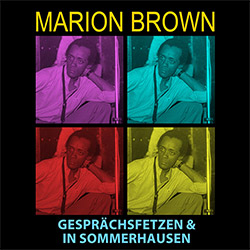
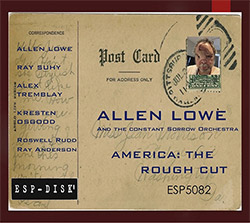
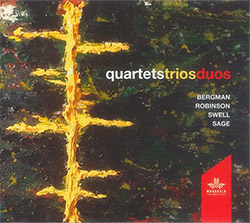





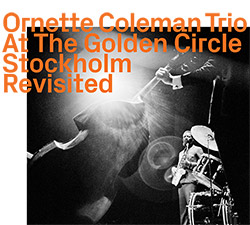

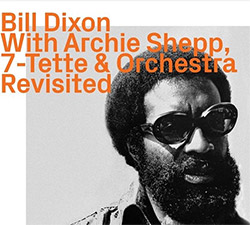

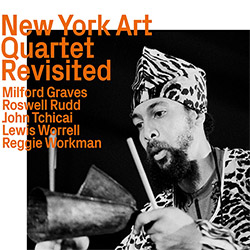

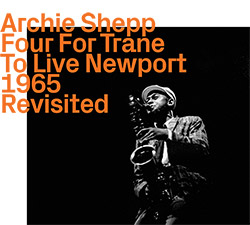
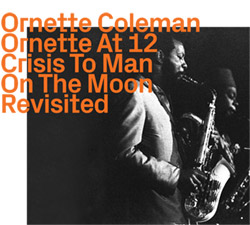

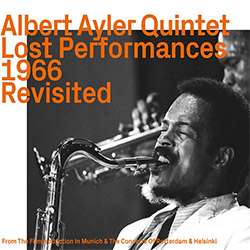
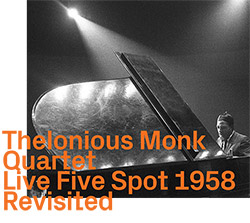



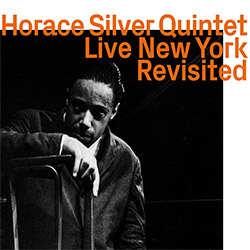






![+DOG+: The Light Of Our Lives [2 CDs]](https://www.teuthida.com/productImages/misc4/36009.jpg)


![Parker, Evan / Jean-Marc Foussat: Insolence [VINYL]](https://www.teuthida.com/productImages/misc4/36398.jpg)










![Deupree, Jerome / Sylvie Courvoisier / Lester St. Louis / Joe Morris: Canyon [2 CDs]](https://www.teuthida.com/productImages/misc4/36404.jpg)


![Eternities: Rides Again [CASSETTE]](https://www.teuthida.com/productImages/misc4/36247.jpg)

![Lopez, Francisco: Untitled (2021-2022) [2 CDs]](https://www.teuthida.com/productImages/misc4/36438.jpg)




![Eventless Plot | Haarvol: The Subliminal Paths [CASSETTE + DOWNLOAD]](https://www.teuthida.com/productImages/misc4/36232.jpg)







![Eventless Plot | Francesco Covarino: Methexis [CASSETTE + DOWNLOAD]](https://www.teuthida.com/productImages/misc4/36231.jpg)



![Das B (Mazen Kerbaj / Mike Majkowski / Magda Mayas / Tony Buck): Love [VINYL]](https://www.teuthida.com/productImages/misc4/36329.jpg)



![Hemphill Stringtet, The: Plays the Music of Julius Hemphill [VINYL]](https://www.teuthida.com/productImages/misc4/36409.jpg)









![Money : Money 2 [2 CDs]](https://www.teuthida.com/productImages/misc4/35894.jpg)




![Klinga, Erik: Elusive Shimmer [VINYL]](https://www.teuthida.com/productImages/misc4/36258.jpg)
![CHANGES TO blind (Phil Zampino): Volume 9 - I Wave on a Fine Vile Mist [CD + DOWNLOAD]](https://www.teuthida.com/productImages/misc4/36061.jpg)

![Wallmart / Rubbish: Asset Protection [split CD]](https://www.teuthida.com/productImages/misc4/35900.jpg)


![+Dog+: The Family Music Book Vol. 5 [2 CDs]](https://www.teuthida.com/productImages/misc4/35897.jpg)
![Kuvveti, Deli : Kuslar Soyledi [CASSETTE w/ DOWNLOAD]](https://www.teuthida.com/productImages/misc4/36107.jpg)

![Nakayama, Tetsuya: Edo Wan [CASSETTE w/ DOWNLOAD]](https://www.teuthida.com/productImages/misc4/36105.jpg)

![Brown, Dan / Dan Reynolds: Live At The Grange Hall [unauthorized][CASSETTE]](https://www.teuthida.com/productImages/misc4/36245.jpg)








![Palestine, Charlemagne / Seppe Gebruers: Beyondddddd The Notessssss [VINYL]](https://www.teuthida.com/productImages/misc4/36206.jpg)
![Palestine, Charlemagne / Seppe Gebruers: Beyondddddd The Notessssss [NEON GREEN VINYL]](https://www.teuthida.com/productImages/misc4/36207.jpg)

![Laubrock, Ingrid: Purposing The Air [2 CDs]](https://www.teuthida.com/productImages/misc4/35639.jpg)

![Yoko, Ono / The Great Learning Orchestra: Selected Recordings From Grapefruit [2 CDs]](https://www.teuthida.com/productImages/misc4/35841.jpg)









![Zorn, John / JACK Quartet: The Complete String Quartets [2 CDs]](https://www.teuthida.com/productImages/misc4/35609.jpg)

![Lonsdale, Eden: Dawnings [2 CDs]](https://www.teuthida.com/productImages/misc4/35480.jpg)



![Sorry For Laughing (G. Whitlow / M. Bates / Dave-Id / E. Ka-Spel): Rain Flowers [2 CDS]](https://www.teuthida.com/productImages/misc4/35985.jpg)

![Rolando, Tommaso / Andy Moor : Biscotti [CASSETTE w/ DOWNLOADS]](https://www.teuthida.com/productImages/misc4/36106.jpg)


![Electric Bird Noise / Derek Roddy: 8-10-22 [CD EP]](https://www.teuthida.com/productImages/misc4/35970.jpg)








![Elephant9 : Mythical River [VINYL]](https://www.teuthida.com/productImages/misc4/34624.jpg)



![Elephant9 with Terje Rypdal: Catching Fire [VINYL 2 LPs]](https://www.teuthida.com/productImages/misc4/35355.jpg)
![Deerlady (Obomsawin, Mali / Magdalena Abrego): Greatest Hits [VINYL]](https://www.teuthida.com/productImages/misc4/34876.jpg)







![Surplus 1980: Illusion of Consistency [CD]](https://www.teuthida.com/productImages/misc4/35069.jpg)
![Staiano, Moe: Away Towards the Light [VINYL + DOWNLOAD]](https://www.teuthida.com/productImages/misc4/35037.jpg)
![Coley, Byron: Dating Tips for Touring Bands [VINYL]](https://www.teuthida.com/productImages/misc4/17906.jpg)

![Lost Kisses: My Life is Sad & Funny [DVD]](https://www.teuthida.com/productImages/misc4/lostKissesDVD.jpg)